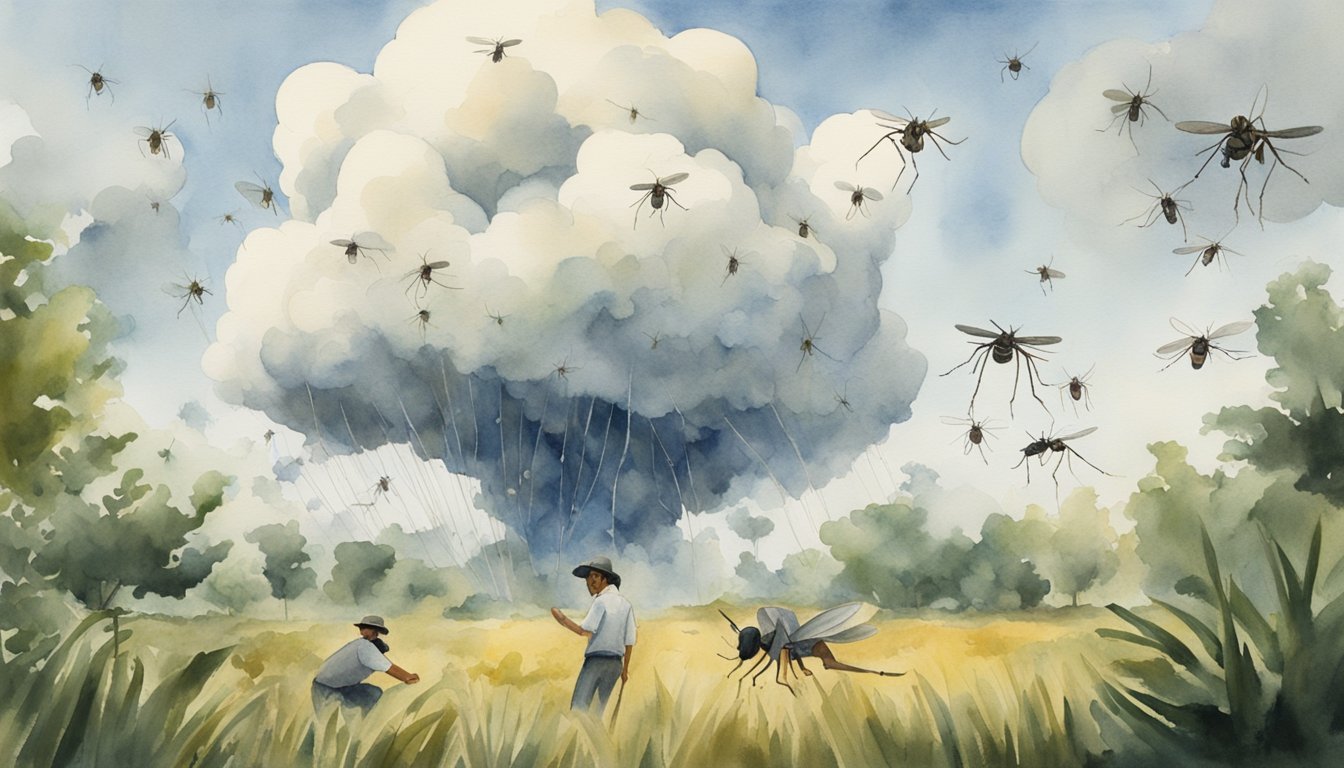Mosquito Eradication Strategies
In addressing the global challenge posed by mosquito-borne diseases, various eradication strategies target different stages of mosquito development and leverage species-specific vulnerabilities.
Biological Control Methods
Biological control involves using natural predators of mosquitoes or organisms that interfere with their breeding. Stocking bodies of water with fish that feed on mosquito larvae can significantly reduce the mosquito population. Similarly, the introduction of bacteria into water can infect and kill mosquito larvae, a process known as larviciding. Bats and birds also play a role, as they consume adult mosquitoes, helping to control the population.
Chemical Control Techniques
Chemical interventions are a common and effective way to control mosquitoes. They range from the application of insecticides aimed at killing larvae in the water, to fogging or spraying insecticides to target adult mosquitoes. Careful use of chemicals, such as those recommended by the US Environmental Protection Agency, can ensure the elimination of mosquitoes while minimizing environmental impact.
Genetic Modification Approaches
Recent advances in science have led to genetic modification as a method for mosquito control. By releasing sterile male mosquitoes into the environment or those with a gene drive designed to spread infertility, the aim is to decrease mosquito reproduction rates. Gene editing techniques can potentially eradicate invasive species like the Aedes aegypti and Asian tiger mosquito, which are responsible for spreading diseases like yellow fever and dengue.
Impact and Challenges of Mosquito Eradication

Eradicating mosquitoes has significant implications for public health, the environment, and ethical considerations. This discourse provides insight into the potential outcomes and hurdles that such an undertaking presents.
Health and Disease Prevention
Eradication of certain mosquito species could drastically reduce instances of mosquito-borne diseases such as malaria, dengue fever, yellow fever, West Nile virus, and Zika virus, which are significant threats to human health. For instance, the Zika virus has been linked to severe birth defects like microcephaly, particularly alarming for populations in affected regions. The World Health Organization supports various measures for disease control and stresses the importance of both vaccines and vector control as part of a comprehensive approach to disease prevention.
Environmental Concerns
Mosquitoes play a role in ecosystems and are important pollinators for some plants. Their eradication could therefore have unforeseen effects on plant ecology, possibly affecting vegetation that relies on them. Additionally, since mosquitoes serve as food for numerous animals, their removal could impact those species’ survival, potentially causing a cascade of ecological changes. Concerns also arise regarding the potential reduction in genetic diversity and the far-reaching effects of extinction on both local and global ecosystems.
Ethical and Regulatory Issues
The idea of eradicating a species raises philosophical and ethical questions. It involves weighing the value of human life against ecological consequences and considering who should make such decisions. Regulatory challenges also come into play as multiple countries and regions grapple with different laws, priorities, and impacts of potential eradication programs. Even within the scientific community, there’s debate on the ethics and long-term sustainability of such actions, as the drive for immediate human benefit is counterbalanced by the responsibility to protect environmental integrity.

